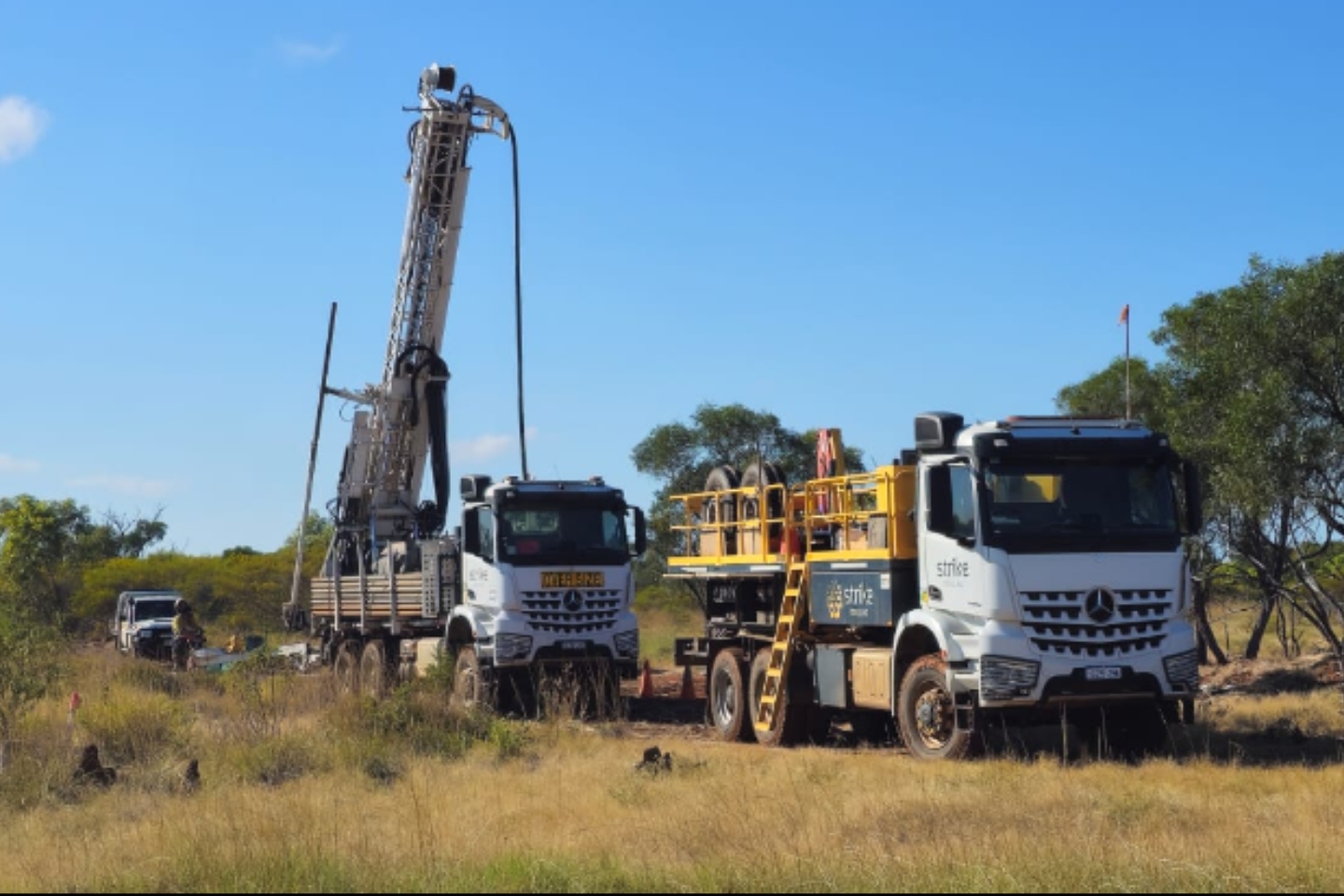Aspiring rare earths developer Red Metal is aiming to stretch its “world-first” Sybella discovery with a new drilling program outside the known mineralisation zone at its project about 20km south-west of Mt Isa in North Queensland. The company is looking to define the potential size of the deposit and its grade, with plans to drill 10,000m using a combination of air-core and percussion drilling.


Aspiring rare earths developer Red Metal is aiming to stretch its “world-first” Sybella discovery with a new drilling program outside the known mineralisation zone at its project about 20km south-west of Mt Isa in North Queensland.
The company is looking to define the potential size of the deposit and the quality of its grade, with plans to drill 10,000m using a combination of air-core (AC) and percussion drilling.
Red Metal says it has a massive target to explore at its Sybella rare earths project, describing it as a unique type of rare earths discovery that, like clay-hosted ionic and non-ionic deposits, can potentially provide a low-capex and low-cost heap leach processing option.
The rare earth-enriched and partially-weathered granite extends for 12km in length and has a width of about 3km, with drilling designed to target an 8km-by-3km area.
The company has planned some drillholes to have 800m-by-200m spacing, while others in the centre of the drill lines will be spaced at a wider 400m. It is initially aiming for 60m-deep AC holes to drill-bit refusal upon encountering bedrock and then deeper percussion drilling to acquire fresh granite samples.
The drilling is also designed to test the consistency of the rare earths grades and any variation in metallurgical sampling.
Red Metal managing director Rob Rutherford said: “This extensive step-out program should confirm the vast tonnage potential of our new Sybella rare earths discovery and provide the basis for infill resource definition work later in the year. It is a busy time ahead for Red Metal, with strong news flow expected as assays from the drilling begin to flow and results from optimised metallurgical leach testwork and innovative purification studies come to hand in the months ahead.”
The company’s initial drill program discovered granite-hosted mineralisation beginning at surface, with three prospective areas identified. Boundary Fence East and Boundary Fence West had several successful drill intersections, in addition to Donkey Dam exhibiting higher-grade hits.
Thick intersections of a stellar 120m at 1724 parts per million total rare earth oxides (TREO) plus yttrium from surface included the valuable magnet rare earths, neodymium-praseodymium (NdPr), at 340ppm and a hit of 120m from surface going 1962ppm TREO plus yttrium including 336ppm NdPr. The Donkey Dam prospect produced a sterling 48m at 4155 TREO including yttrium from surface with 798ppm NdPr.
Follow-up testwork conducted by rare earths metallurgical specialists ANSTO Minerals validated Red Metal’s breakthrough leach results using chip samples from Sybella. The company says ANSTO’s supplementary findings back up its phase one testwork that was completed by Core Resources and showed high recoveries and low impurities using low levels of acid consumption for both valuable magnet and heavy rare earth oxides.
ANSTO Minerals is an arm of the Australian Nuclear Science and Technology Organisation – a statutory agency that reports to the Federal Parliament. It ran similar bottle roll leach tests to the ones carried out by Core that used coarse non-pulverised chip samples from reverse-circulation (RC) drilling at Sybella.
Red Metal believes the matching results from both sets of testwork may point to an opportunity for low-cost processing, potentially using heap leach methods. It says only minor differences in acid consumption and rare earths extraction levels were identified and its phase two testwork used crushed drill core that will aid in the understanding of any slight variances in the results.
The phase two results evaluating leach responses for a range of size fractions tested by various methods are expected to be revealed shortly.
Management believes there is vast tonnage potential, with zones open north, south and at depth. It says future plans would involve open pit mining and an expected magnet rare earth oxides (MREO) figure of about 70 to 80 per cent payable, based on anticipated recovery levels.
The company says its work this year is expected to include the new drilling, the awaited phase two leaching tests, communition studies and purification studies on the pregnant, or metal laden, leach solutions.
The leach testwork results and the highly-anticipated drill program will go a long way towards identifying the true potential of Red Metal’s Sybella project.
Is your ASX-listed company doing something interesting? Contact: matt.birney@businessnews.com.au












